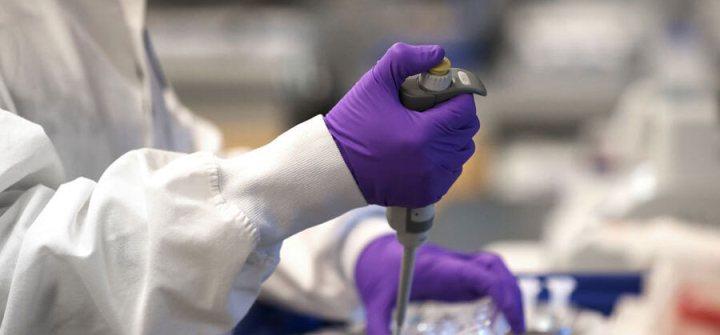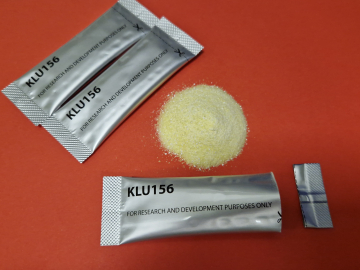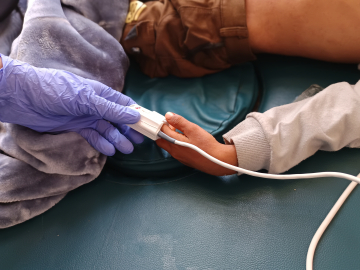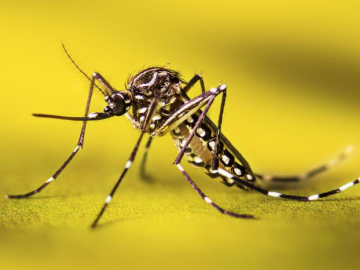At Risk for COVID-19? Warp Speed Vaccine Trials Want You
The US government’s Operation Warp Speed may not be exceeding light speed, but it’s going pretty darn fast for a massive, government-run vaccine testing program.
One major challenge: Landing 150,000+ volunteers who are sufficiently diverse in age, ethnicity, sex, health conditions, and other characteristics for at least 5 trials in the next 6 months.
Warp Speed, which is led by the Department of Health and Human Services and involves FDA, NIH, CDC, and other agencies, launched its first large clinical trial yesterday, which ultimately will include 30,000 participants spread across 89 research sites in the US, according to HHS. Volunteers will be followed for more than 2 years to determine if the Moderna vaccine (called mRNA-1273) can prevent severe clinical outcomes like pneumonia, hospitalization, intubation, and acute respiratory distress syndrome.
More than 195,000 Americans have already volunteered online to participate in the Warp Speed trials, but “the bad news is that most of the people who signed up are in their 20s and 30s. The median age is 30. So, they're kind of too young and too healthy,” says Chris Beyrer, MD, MPH, COVID-19 Vaccine Prevention Network co-lead for Community Engagement.
And only 10% of enrollees so far are from a minority group.
Beyrer is working to ensure the enrollment of vulnerable populations including older adults, people with underlying conditions, Native Americans, African Americans, and Latino Americans.
A veteran of nearly 2 decades of work in HIV vaccine trials, Beyrer says he’s adjusting to working with different at-risk populations. For HIV vaccine trials, his team would enroll young gay men and young trans women in the US and young women in sub-Saharan Africa. “All of a sudden, we're not partnering with ACT-UP, we’re wondering about AARP [and] the meat packers of the Midwest—totally different people,” he says.
The initial vaccines being tested have a more modest goal than “sterilizing immunity,” or the complete prevention of infection. Rather, they seek to minimize COVID-19’s most severe symptoms. Trial researchers don’t want just young, healthy volunteers because they often avoid the coronavirus’s most serious health consequences.
Beyrer and others in the COVID-19 Prevention Trials Network are looking to enroll people with underlying conditions like hypertension, obesity, and diabetes that would predispose them to more severe disease. (COVPN was created by merging 4 NIAID-funded clinical trials networks.)
To enroll diverse participants, the network is turning to expert panels of Native American, African American, and Latino American researchers and community leaders, including faith-based leaders.
Getting the right mix of participants will be a challenge, Beyrer acknowledges, especially in the first trial. The AstraZeneca/Oxford vaccine, the next trial to launch, will likely have a more diverse group. That trial will launch in mid- to late August, he says.
“I've never seen anything move this quickly,” says Beyrer, the Desmond M. Tutu Professor of Public Health and Human Rights at the Johns Hopkins Bloomberg School of Public Health.
A major Warp Speed timesaver: The government is paying companies in advance to scale up and manufacture the vaccines without knowing whether they will be effective.
“It's a multibillion dollar gamble … and we're just going to eat the loss of the ones that turned out not to have efficacy,” Beyrer says. “The idea is that we don't end up in January 2021 with a highly efficacious vaccine that we now have to spend 6 months manufacturing. This is the gamble.”
Given how quickly SARS-CoV-2 spreads and the faltering US response to the pandemic, the US has no other real options. “Social distancing, contact tracing, and testing strategies are not going to work. It's too late, well beyond that point,” he says. “We're going to need a vaccine or a very effective antiviral therapeutic if we're ever going to get out of this mess.”
Despite his history working in HIV vaccine trials that have so far failed to yield an effective preventive, Beyrer is cautiously optimistic about a coronavirus vaccine for a few reasons:
- The natural human immune response to the virus—that increases the likelihood of an effective vaccine.
- The simultaneous investment in multiple vaccine strategies such as protein subunit vaccines, RNA vaccines, and viral vector vaccines.
- The large, robust vaccine trials that offer a pretty good “head-to-head” comparison of the different vaccines.
But time (and vaccine trials) will tell which, if any, of the Warp Speed vaccines might have the potential to turn the pandemic. Says Beyrer: “You know you hate to say it, but it's an experiment, and you don't know until you do it.”
Ed. Notes: If you are 18 or older and interested in participating in the Moderna vaccine trial, visit ClinicalTrials.gov and search identifier NCT04470427 for details.
For GHN's latest coverage of the coronavirus, visit here.
And, please send GHN any questions you'd like to see answered related to the coronavirus outbreak. Just email Dayna (dkerecm1 at jhu.edu).
Join the tens of thousands of subscribers who rely on Global Health NOW summaries and exclusive articles for the latest public health news. Sign up for our free weekday newsletter, and please share the link with friends and colleagues: https://www.globalhealthnow.org/subscribe
Scientist Xinhua Yan works in the lab at Moderna in Cambridge, Massachusetts on Feb. 28, 2020. Image: David L. Ryan/The Boston Globe via Getty





